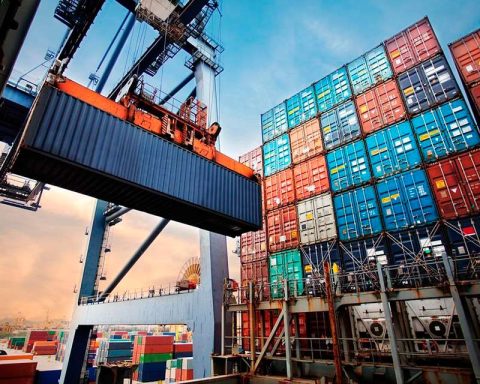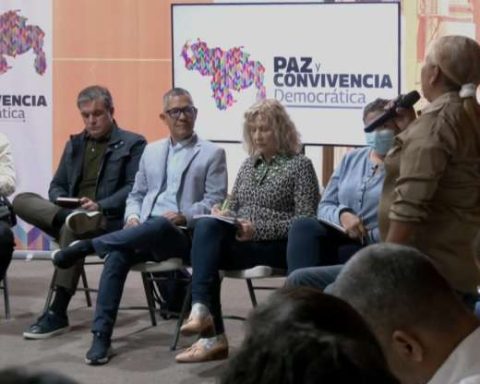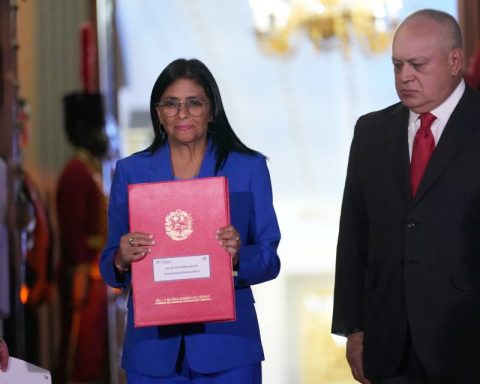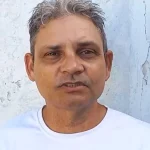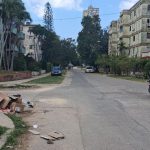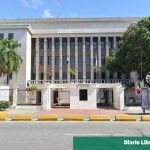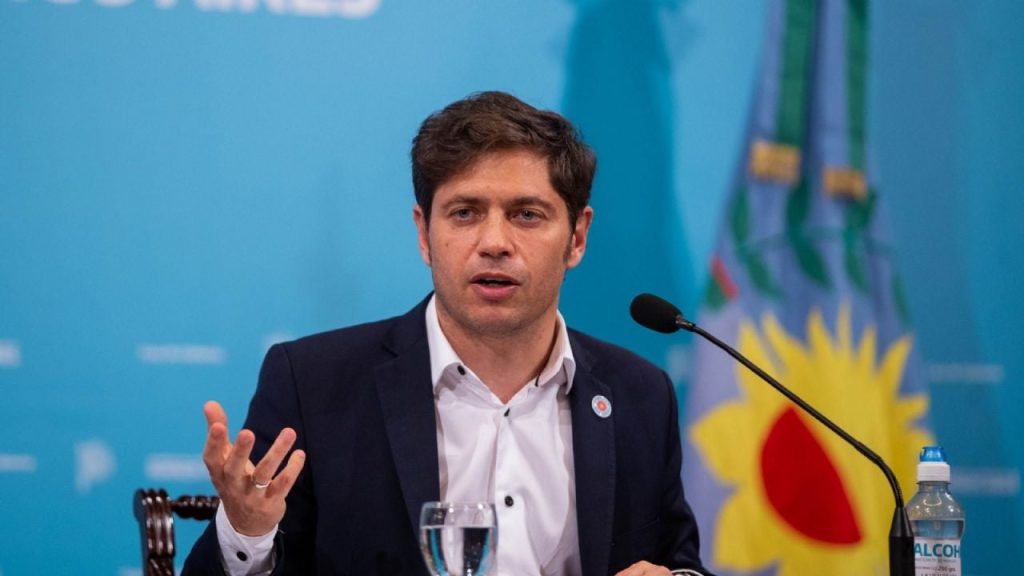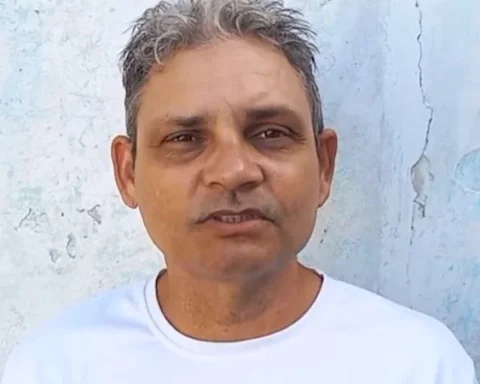Venezuelans are still recovering from the electrical sabotage that left most of the national territory in the dark in 2019. On March 7 of that year, a massive cyber attack on the Simón Bolívar Hydroelectric Plant in Guri, Bolívar state, caused a blackout that lasted for 5 days, when the national government’s efforts gradually managed to restore service.
The stories of public upheaval are still fresh in the air. Hospitals were paralysed, industries were closed, transport and water supply problems were disrupted, which was exploited by opposition groups to generate violence and cause the deaths of 43 people, according to official figures.
That horror story happened months after the self-swearing-in of the fugitive from justice, Juan Guaidó, who proclaimed himself president in a public square, violating all the legal provisions in force. Guaidó himself, in those days, declared to the country: “If you want the light to return, stop the usurpation,” in reference to the blackmail of the national right so that the legitimate president, Nicolás Maduro, would abruptly leave power.
This 2024, we find ourselves with the same story, but with a different protagonist. On August 30, 2024, more than half of Venezuela woke up in the dark after a New cyber attack on the National Electric System (SEN). The blackmail is identical and this time the spokesperson was the far-right leader María Corina Machado, who said that her actions would seek to suffocate the government in order to precipitate her departure.

“The political leadership (of his movement) has the task of coordinating what is done inside and what is done outside. Surrounding the kidnapper, as is done when you have a prolonged hostage situation: you cut off the water, you cut off the electricity, you cut off the weapons, you cut off the money… and then, when the kidnapper sees that every day that passes his situation deteriorates, that he is surrounded, then it is the kidnapper who has incentives to negotiate,” said Machado in an interview broadcast on August 30.
In this way, subliminally, Machado assumes authorship of the new attack on the SEN, which was denounced by the national government and corrected, this time, in record time.
A country under siege
Cyber attacks are a much more elaborate form of destabilization that the Venezuelan right has used in its search for a shortcut to power. But this technique is part of a multi-pronged strategy that has affected the lives of Venezuelans, including the economic blockade.
Since former US President Barack Obama declared Venezuela an “unusual and extraordinary threat” to the interests of his country, a rain of sanctions fell on the national economy. When Donald Trump arrived at the White House, these coercive measures multiplied to the point of blocking the Venezuelan economy and the export of its main resource, oil.
With the arrival of Trump and the recognition of the supposed government of the self-proclaimed Juan Guaidó, many Venezuelan assets abroad were confiscated. Thus, the resources of the main Venezuelan company abroad, Citgo, were blocked, as well as the company Monómeros in Colombia and access to credits and loans in the name of the State.


Other governments close to Washington also blocked Venezuelan assets. The United Kingdom seized 31 tons of Venezuelan gold that had been stored in its vaults, and Portugal blocked 1.5 billion dollars deposited in Venezuela’s name in its banks.
The blockade reached its peak of cruelty during the Covid-19 pandemic, when the country was denied the purchase of vaccines and medical supplies to contain the spread of the virus. President Maduro has said that the intention of the United States and its allies was to turn Venezuela into one of the hotbeds of the pandemic, but this blockade was overcome with the help of China, Russia and Cuba, which selflessly provided their vaccines for the well-being of the Venezuelan people, who in the end were one of the countries with the fewest victims of Covid in the region.
As a result of this blockade, the economic damage to Venezuela has reached 800 billion dollars, not including in this amount the amount of money lost due to corruption that the beneficiaries of the usurpation supported by Washington committed with the nation’s resources abroad.
The guarimba and the blockade as a post-election tantrum
The Venezuelan extremist right has become accustomed to using violence as a way of ignoring election results, causing enormous material, economic and human losses. To achieve this, they invented the so-called “guarimbas”.
The criminal mastermind behind this form of terrorism is Cuban-Venezuelan Robert Alonso, owner of the Daktari estate, where he housed more than a hundred Colombian paramilitaries to assassinate Commander Hugo Chávez and other high-ranking government officials in 2004.
A few months earlier, the first riots had taken place, when for five days political activists from the east of Caracas burned garbage and attacked public property in protest against the rejection of the flat signatures presented by the right to call for a recall referendum against Chávez.
Another electoral event linked to riots occurred in 2009, when a minority group protested against the results of the constitutional referendum that modified some articles of the Magna Carta, but the violent rehearsal lasted only a few days.


Over the years, and with the link between right-wing factors and criminal groups, the riots grew in organization and violence. In 2014, during the first government of Nicolás Maduro, the techniques to affect national life became even more terrifying. The violent ones began to use homemade utensils made with pieces of hose and nails, known as “miguelitos”, metal cables placed between light poles to supposedly defend themselves from the “colectivos” and which decapitated dozens of motorcyclists, as well as the use of Molotov cocktails, bottles, stones and direct attacks on security forces.
But the most violent so far, occurred in 2017. These riots were the result of the right’s emboldening after its victory in the 2015 parliamentary elections. With the fugitive from justice Julio Borges in the presidency of Parliament, the promise was made to remove the government with a permanent presence in the streets. This wave of violence was accompanied by an induced shortage of products and an attack on the national currency. The violence lasted just over three months and ended with a death toll of 163.
The aggression did not stop despite these macabre figures, and in 2019, the right launched the first massive attack against the SEN, as a measure of pressure and suffocation of the government of Nicolás Maduro, which was accompanied by an onslaught by the United States and its satellite countries with the application of economic sanctions and the commercial blockade against Venezuela.
“We have seen that movie”
After the attack on the SEN brain in 2019, it took the Venezuelan government some time to prove that the sabotage was the result of a massive cyber attack directed from abroad. President Maduro confirmed that it was detected that the attack came from a Cyber Warfare Center at the Pentagon in Washington.
Cyber attacks have been repeated since then against state websites, national security operating systems and multiple attacks against the SEN on repeated occasions. The most recent one was just made known to the country, when the cyber attack against the data transmission system of the National Electoral Council occurred, thus clouding the presidential election process of July 28, the result of which was rejected with new riots that left 27 dead, none attributed to law enforcement.


In response to the new attack on the SEN, which occurred on August 30, in a clear post-election tantrum by sectors of the extreme right, President Maduro said that “we have already seen this movie, and we know its protagonists,” in relation to the violent actions of the opposition and its leaders inside and outside the country.
The Minister of Interior, Justice and Peace, Diosdado Cabellohe said in relation to the authors of this new attack, that “the loudmouths always come out. At 4:48 there were messages from right-wing spokesmen celebrating the attack… harming our people, what they do is strengthen the spirit of the people.”
He added that “justice will come to those who plan these actions against our people. And that gives peace of mind to the people.”
The national government acted quickly and effectively in this recent attack. After the reactivation of electricity service in most of the country, President Maduro said that the investigations are well advanced to determine who is responsible and to do justice.


